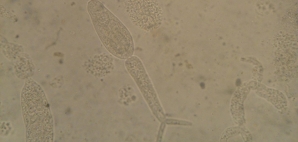Public Health
Research Area block
Public health solutions must incorporate a multitude of contributing environmental factors.

The Stanford Woods Institute works with partners in low- and middle-income countries, primarily in Asia and Africa, to solve challenges facing water supply, water quality, sanitation, hygiene, health, energy and food production. Stanford researchers are working to strengthen the scientific basis for water and sanitation decision-making, enhance developing countries’ capacity for sustainable water and wastewater management and improve the health and well-being of households in some of the world’s poorest countries.
Research Centers and Programs

Osa & Golfito Initiative (INOGO) »
The Osa & Golfito Initiative (INOGO) is facilitating the development of a strategy for sustainable human development and environmental stewardship in Costa Rica’s Osa and Golfito region. INOGO works hand in hand with Costa Ricans in local communities, government, the private sector and NGOs. The goal is to generate a...

Water, Health & Development »
Working with partners in Asia, Africa and the Caribbean, Stanford researchers with the Program on Water, Health & Development are identifying ways to improve and increase the sustainability of water supply and sanitation service delivery, while also enhancing capacity for sustainable water and wastewater management in developing countries.
Other Research Centers and Programs
Environmental Venture Projects
News & Press Releases

Disease-Carrying Parasite May Have Achilles Heel »
Stanford researchers find infected snails are more appealing to their natural predators
By Rob Jordan,
View More News & Press Releases
Media Coverage
Living On Top Of Forgotten Oil And Gas Wells »
Senior Fellow Rob Jackson (earth system science) explains how "plugged" gas wells can still leak methane at various levels.
By Stephanie Joyce,



